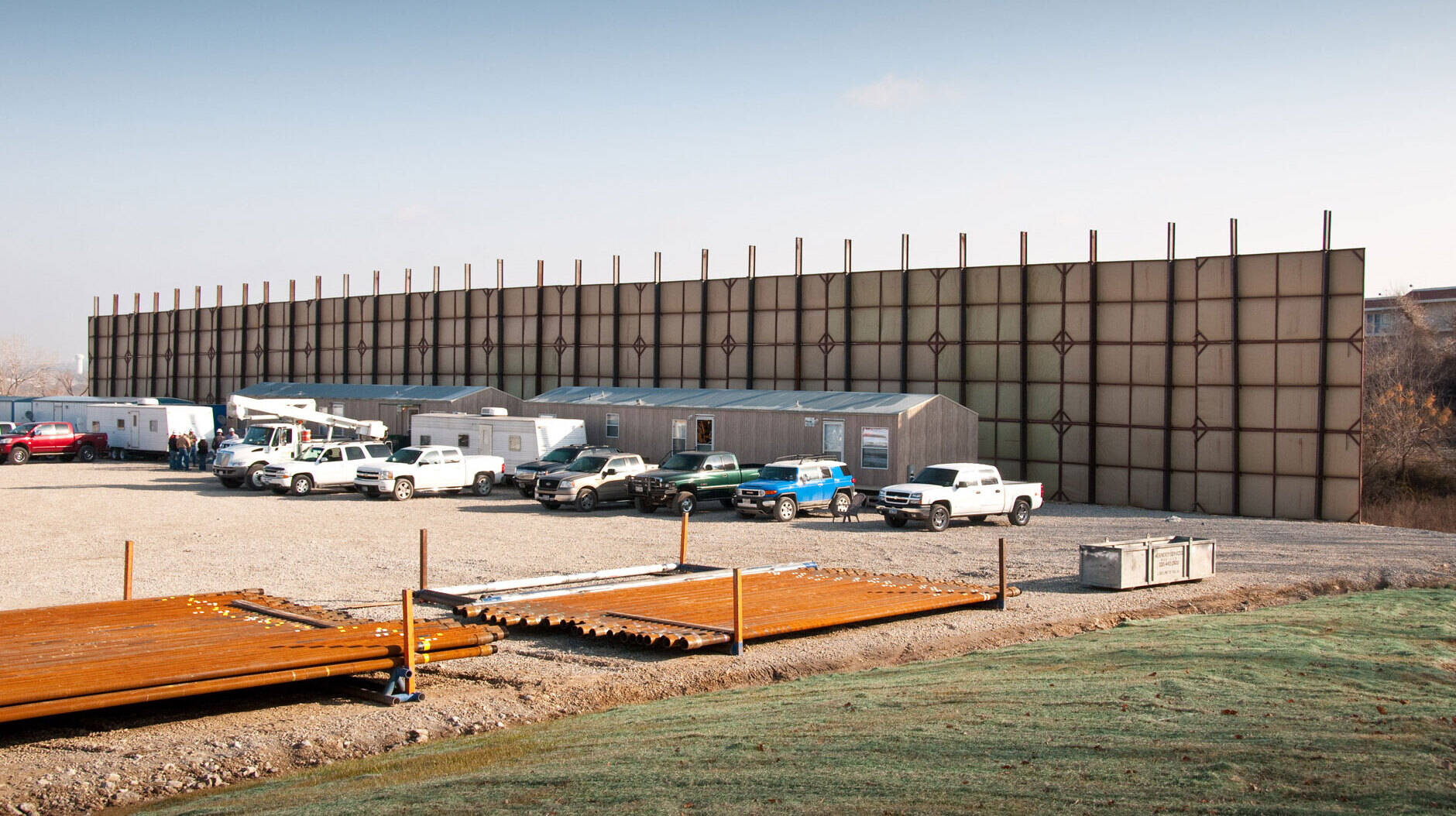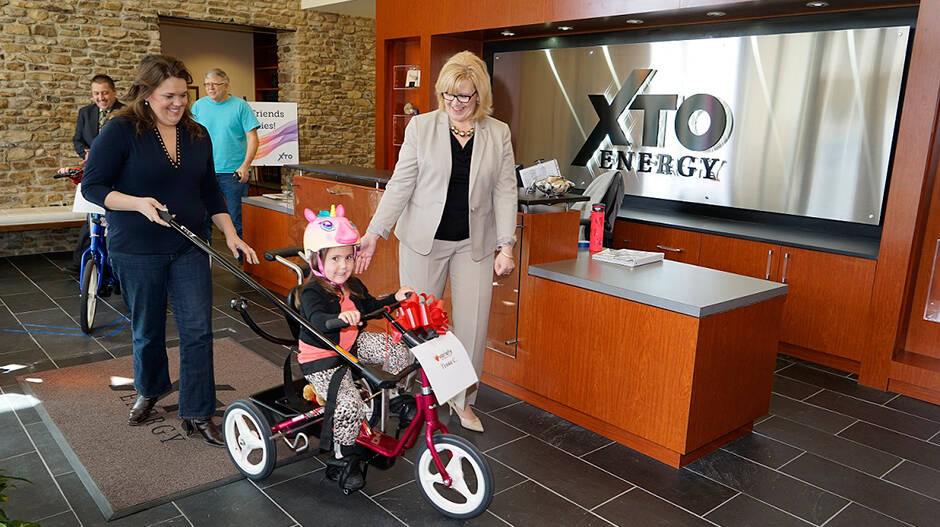Managing community impacts
In this article
Noise and truck traffic
Though the noise levels from the operational site may be low, acoustic barriers are sometimes installed around the perimeter of the area to reduce nuisance sound levels even further.
Once the well is producing, there is no detectable sound from the operation.
To minimize traffic disruptions, trucks used are required to use designated routes during specified hours of the day and week, usually at off-peak times. We aim to limit truck traffic during school transit hours and through neighborhoods.

Landscaping
Softening the appearance of pad sites is one way we address community concerns about our operations.
Once we have drilled and completed a well, we strive to soften the appearance of our pad sites for our neighbors. Carefully selected plant species coupled with irrigation management help ensure a lasting visual improvement. We aim to maintain architectural consistency with the surroundings in the fencing and landscaping materials chosen for perimeter protection.

Soundwalls
During the initial stages of our operations, we may use temporary soundwalls to mitigate sound impacts for surrounding homes and businesses.
Soundwalls are erected before high levels of activity begin, and have proven to be an effective sound abatement method during 24-hour operations to ensure sound is below ambient surrounding levels. Soundwalls are installed on reinforced frames, are fireproof and are removed once routine operations resume.

Community Advisory Panels
Community Advisory Panels help XTO build relationships and trust in the communities where we operate.
An open and active dialogue with community members is vital to our long-term operations. Community Advisory Panels (CAP) provide a forum for an open exchange and conversation.
Currently, XTO hosts one CAP in Butler County, Pennsylvania, and one in Belmont County, Ohio. Each CAP includes about 25 leaders from academia, business, nonprofit organizations, emergency management and other areas.
“The CAP keeps the community informed about the true nature of the gas industry,” said Chuck Stowe, a township supervisor and member of the Butler County panel. “It gives community leaders a chance to get to know XTO employees and executives. They explain XTO’s operations, how they manage safety and protect the environment. We can share that information with people in the community.”
The bimonthly meetings include presentations about topics that interest panel members, as well as tours of local XTO operations. The Butler County CAP has toured a drill site, cryogenics and compressor facilities, and a pipeline installation during the past three years.
“Regular dialogue with key members of the communities is critical,” said Kurt Knaus, XTO meeting facilitator for both CAPs. “It’s not just telling them about XTO. It’s about listening. Every community is different. What might work in one community may not work in another, and the only way to know what works is to talk to the people who live there. The back-and-forth we experience in the CAPs enables us to do that."

Related content

Employee participation
We foster a culture that encourages employees to contribute to the communities where they live and work, by granting time off from work to volunteer with charitable organizations.